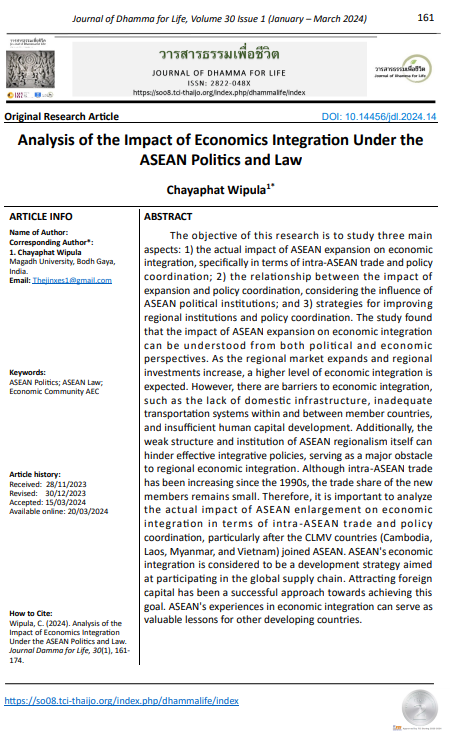Analysis of the Impact of Economics Integration Under the ASEAN Politics and Law
Main Article Content
Abstract
The aim of this research is to study three main aspects: 1) the actual impact of ASEAN expansion on economic integration, specifically in terms of intra-ASEAN trade and policy coordination; 2) the relationship between the impact of expansion and policy coordination, considering the influence of ASEAN political institutions; and 3) strategies for improving regional institutions and policy coordination.
The study found that the impact of ASEAN expansion on economic integration can be understood from both political and economic perspectives. As the regional market expands and regional investments increase, a higher level of economic integration is expected. However, there are barriers to economic integration, such as the lack of domestic infrastructure, inadequate transportation systems within and between member countries, and insufficient human capital development. Additionally, the weak structure and institution of ASEAN regionalism itself can hinder effective integrative policies, serving as a major obstacle to regional economic integration. Although intra-ASEAN trade has been increasing since the 1990s, the trade share of the new members remains small. Therefore, it is important to analyze the actual impact of ASEAN enlargement on economic integration in terms of intra-ASEAN trade and policy coordination, particularly after the CLMV countries (Cambodia, Laos, Myanmar, and Vietnam) joined ASEAN. ASEAN's economic integration is considered to be a development strategy aimed at participating in the global supply chain. Attracting foreign capital has been a successful approach towards achieving this goal. ASEAN's experiences in economic integration can serve as valuable lessons for other developing countries.


